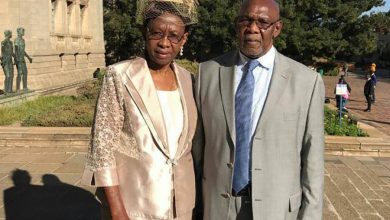‘CSOs must counter misinformation to build community resilience’

Civil Society Organisations (CSOs) are key players in the fight against misinformation and disinformation, as it is their role to make sure that people have sufficient skills to debunk fake news.
As organisations that work with people, CSOs must educate communities on the importance of creating and sharing accurate information, as disinformation and misinformation pose a threat to democracy.
Speaking on how to combat misinformation: The Agenda for Civil Society at the Media and Information Literacy in Matabeleland Conference hosted by CITE in Bulawayo, human rights activist, Effie Ncube explained that misinformation matters to CSOs because if allowed to prevail it could endanger democratic debate, cause violence and conflict.
“Fake news can undermine community cohesion and harmony, invite the heavy-handed intervention of the State, cause immense reputational damage, and cause endless electoral and related disputes,” he said, citing an example of how misinformation is used to organise for xenophobia in South Africa.
“Misinformation can cause the targeting of certain groups. It can also lead to disputed electoral outcomes particularly when people are told it doesn’t matter whether you cast your vote or not yet decisions are already made when people sit and don’t participate.”
Ncube noted how misinformation and disinformation tend to create information silos where people of a similar disposition tend to believe the news that does not exist.
“People circulate certain information that misleads themselves. For instance, you meet Zanu PF supporters who believe there is no opposition in Zimbabwe because they have created an information silo where they misinform each other. Similarly, you find instances of opposition supporters who genuinely believe that Zanu PF is dead. These people are surprised when Zanu wins and they dispute the outcome because they were conditioned to think that Zanu doesn’t exist anymore. That’s the danger of misinformation,” he said.
Ncube warned that false information could lead to violations of human rights, increase polarisation and make it impossible for consensus, even on the most important national issues.
“It can kill democratic debate and sometimes some of the fake news is targeting civil society and generates fear. That’s why it is important to never leave the role of educating communities to the state alone,” Ncube said, advising that CSOs should, in fact, engage the state to avoid enacting undemocratic and restrictive pieces of legislation to curb misinformation.
“CSOs must emphasize that the solution to inaccurate and misleading information is accurate information. Freedom of expression and access to information should not be unduly hindered when fighting misinformation and disinformation.
“In this regard, a seminal United States Supreme Court decision comes in hand. Writing for the majority decision, Associate Justice of the Supreme Court of the United States, in one case of the US versus Alvarez, the judge held that: ‘the remedy for speech that is false is speech that is true.’ This is the ordinary course in a free society. The response to the unreasoned is the rational; to the uninformed, the enlightened; to the straight-out lie, the simple truth.”
Ncube noted that additionally, CSOs themselves are facing restrictions from the state owing much to the State misinformation and disinformation targeting the work of CSOs.
“To counter misinformation CSOs should engage in a variety of interventions including, but not limited to fact-checking, digital forensics and research, awareness campaigns and information dissemination, advocacy to governments and platforms, digital and media literacy, networking and coalition building and international cooperation,” said the analyst.
He added that CSOs should drive grassroots activism through which they can and should develop and sustain trusted information networks where independent fact-checking can take place.
“These should act as platforms to identify, respond to and build community resilience to disinformation or misinformation campaigns using such tools such as closed group chats and in-person engagement forums groups,” Ncube said.
“To achieve resilience CSOs should drive media and information literacy and awareness and education campaigns to capacitate communities with critical thinking skills and empower citizens with credible content.”
Through these skills, people who are consuming online and traditional media content can be in a position to differentiate between factual and misleading or fake content, Ncube said.
“This is what CITE is already doing through its community information and media literacy skills hubs. CSOs should capacitate communities to break down echo chambers by facilitating and fostering intergenerational and inter-community dialogues.”
Ncube urged that the aforementioned should be the attitude adopted by CSOs in fighting misinformation.
“If CSOs do not do their job in combating misinformation, the state will step in and do it in ways that would definitely undermine democracy and key tenets of a free society,” he said.






